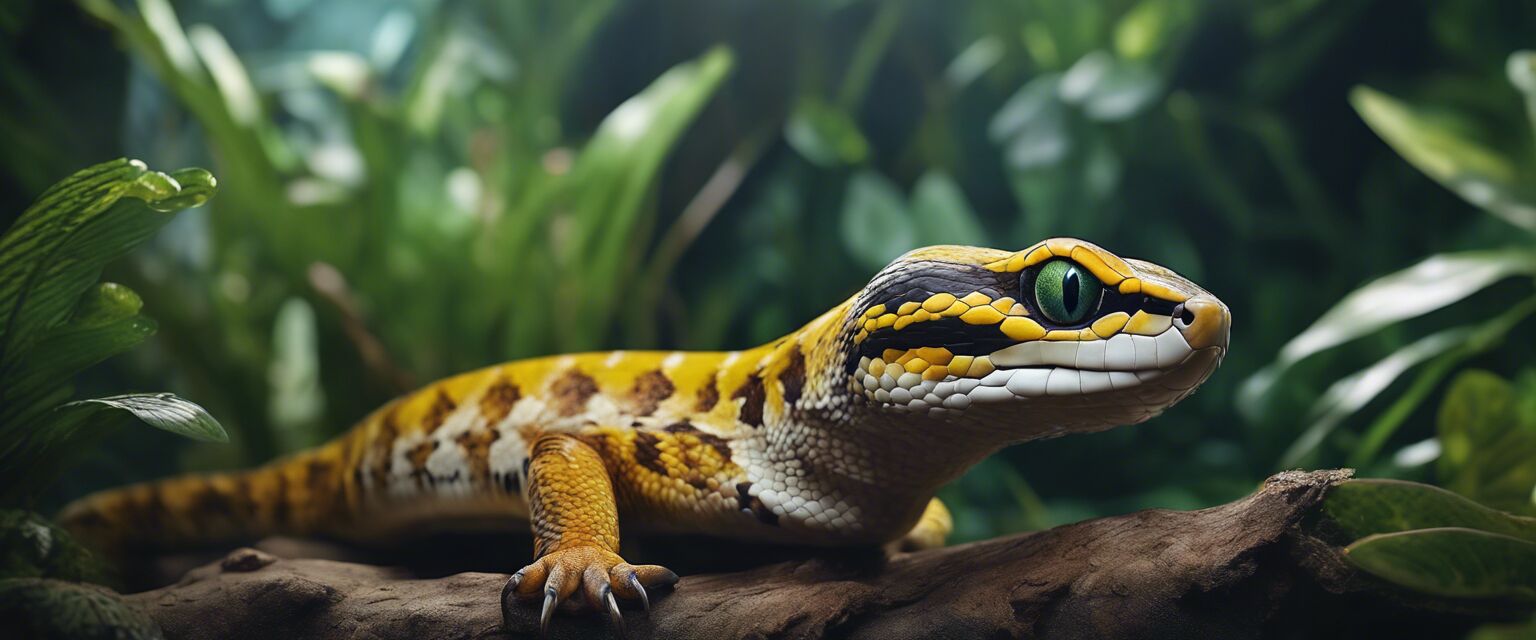
Exotic Pet Care
Key Takeaways
- Exotic pets have unique care requirements.
- Proper habitat setup is crucial for their well-being.
- Nutrition and diet vary significantly among species.
- Regular veterinary check-ups are essential.
- Research before bringing an exotic pet home.
As exotic pet ownership becomes more common, it's vital to understand the unique needs of these fascinating creatures. Whether you're considering a snake, lizard, or even a bird, this guide will help you care for your exotic friend, ensuring a healthy and happy life together.
Types of Exotic Pets
Exotic pets include a wide range of animals that often require specialized care. Below are some of the most popular types:
| Pet Type | Common Species | Care Difficulty |
|---|---|---|
| Reptiles | Snakes, lizards, turtles | Medium to High |
| Birds | Parrots, finches, canaries | Medium |
| Mammals | Ferrets, hedgehogs, sugar gliders | Medium to High |
| Fish | Exotic freshwater, saltwater species | Medium |
| Insects/Spiders | Stick insects, tarantulas | Low to Medium |
Setting Up the Habitat
The environment where your exotic pet lives can greatly impact its health. Make sure to create a suitable habitat.
Essential elements of an exotic pet habitat
- Temperature and lighting
- Enclosure size and type
- Hiding spots and climbing structures
- Clean water and food sources
Example Habitats for Different Species
| Species | Recommended Enclosure Size | Heating Requirement |
|---|---|---|
| Ball Python | 40-gallon tank | 75-80°F ambient, 90°F basking |
| Parrot | 24"X24"X48" cage | Room temperature (65-80°F) |
| Leopard Gecko | 20-gallon tank | 75-85°F ambient, 88°F basking |
Feeding Your Exotic Pet
Feeding your exotic pet a proper diet is crucial for its health. Different species have different dietary needs.
Common Diets by Type
- Reptiles: Insects, mice, plants depending on species.
- Birds: Seeds, fruits, vegetables.
- Mammals: Specialized pellets, insects, fresh fruits/vegetables.
- Fish: Flakes, pellets, frozen food based on species.
Health Care for Exotic Pets
Regular veterinary care is essential for the well-being of your exotic pet. Hereâs what you should know:
Veterinary Visits
- Find a veterinarian who specializes in exotic pets.
- Schedule regular check-ups.
- Keep vaccinations current.
Signs of Illness
Be aware of the common signs that your exotic pet may be unwell:
- Change in appetite
- Abnormal behavior
- Physical changes such as color or texture
- Respiratory issues
Beginner Tips for Exotic Pet Owners
- Research species-specific care requirements.
- Invest in a quality habitat and supplies.
- Join online forums or local groups for support.
Pros
- Unique and captivating pets.
- Opportunity to learn about different species.
- Can be low maintenance depending on species.
Cons
- Specialized care requirements.
- Potential legal restrictions on ownership.
- Limited availability of exotic pet supplies.
Conclusion
Caring for an exotic pet can be a rewarding experience, filled with unique challenges and joys. Ensure you are well-prepared and informed, guaranteeing the best care for your newfound friend. For more information on specific types of exotic pets, check our links on Pet Food, Pet Healthcare, and Pet Training.











